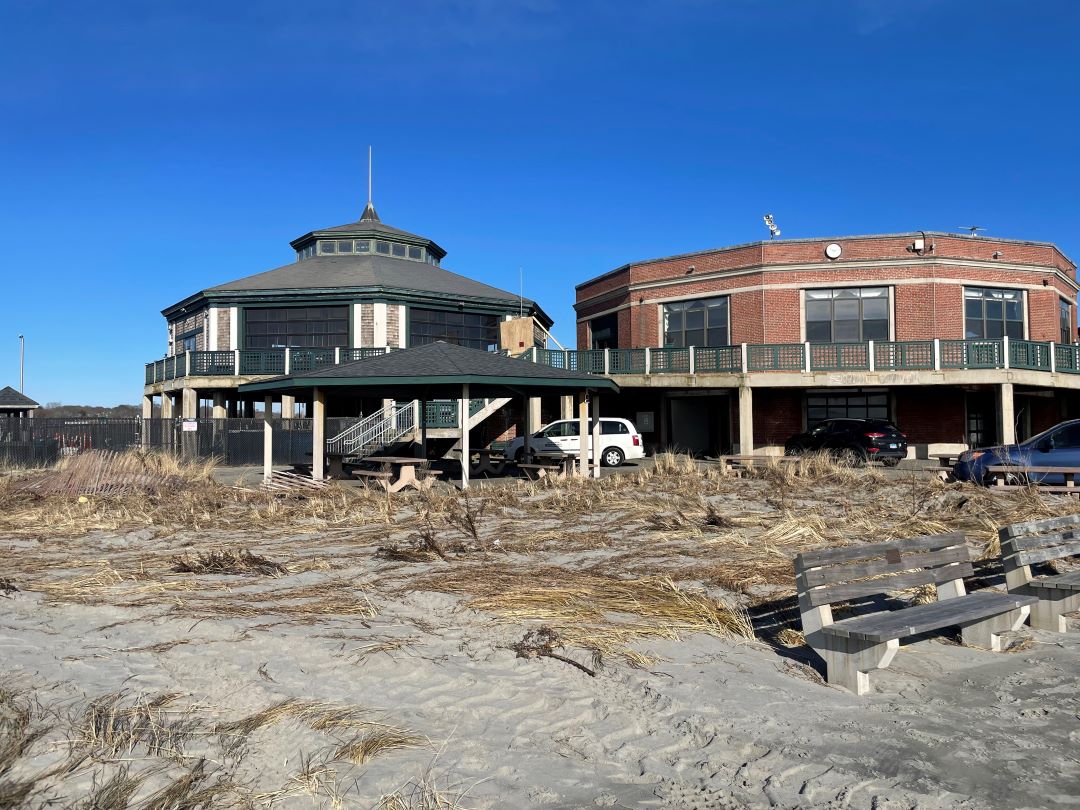Municipal Planners Need Help with Climate Change
November 11, 2013
PROVIDENCE — Immediate action is needed to address climate change, even if all that can be taken now are baby steps. That was the message taken from a climate change conference hosted Nov. 8 by Johnson & Wales University.
At the outset of the summit, top environmental leaders from across New England noted that municipal managers and planners are on the front lines of the climate change struggle — and they need help. The funds and expertise are available but the staff and time to take advantage of them are not.
“We’re relying on our local governments to make a whole set of decisions about land use and emergency response and things that they may not be fully equipped to deal with,” said David Mears, commissioner of the Vermont Department of Environmental Conservation.
As town manager for Waterbury, Vt., William Shepeluk knows this struggle. His community of 5,000 was nearly washed away by Hurricane Irene in 2011. Grants followed for the cleanup and rebuilding, but there was no map for coordinating environmental protection, safety, land use, and schools and commercial interests at the local and state level.
“We have a history of cultural and political development where cities and towns are independent,” he said. “They solve their own problems; they chart their own direction. It’s very, very difficult.”
One solution: regionalization. A stronger multistate support network that helps cities and towns work with federal agencies such as the Federal Emergency Management Agency (FEMA) and the the Environmental Protection Agency (EPA).
“Figure ways to use it wisely and get the people in the community to understand what you are trying to do,” Shepeluk said. “It’s a challenge that is here before us and we have to face it.”
Susanne Rasmussen, director of environmental and transportation planning for Cambridge, Mass., said her city is well into a three-year assessment of flooding, temperature changes and threats to at-risk groups. The 6.25-square-mile community has also joined EcoDistricts projects, which develop a shared vision for creating sustainable cities from the neighborhood up.
“Businesses are at the table, universities are at the table. Everyone understands that this takes all of our best efforts,” Rasmussen said.
Cambridge is the exception when it comes to addressing climate change. Less than 10 percent of New England municipalities are engaged in adaptation planning, according to the EPA. Curt Spalding, head of EPA New England, said the federal agancy is trying to change that by creating regional solutions to streamline planning efforts.
Mears said he has no choice but to hope that something can be done soon to improve adaptation and mitigation planning, before the next big storm or other climate-related disaster. “We must be impatient and we must act now to deal with those things,” he said.
Categories
Join the Discussion
View CommentsYour support keeps our reporters on the environmental beat.
Reader support is at the core of our nonprofit news model. Together, we can keep the environment in the headlines.
We use cookies to improve your experience and deliver personalized content. View Cookie Settings



